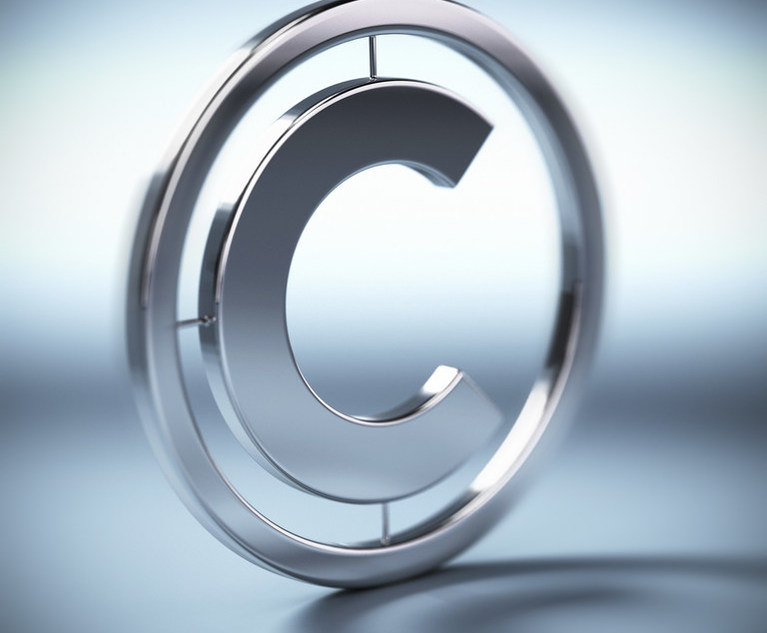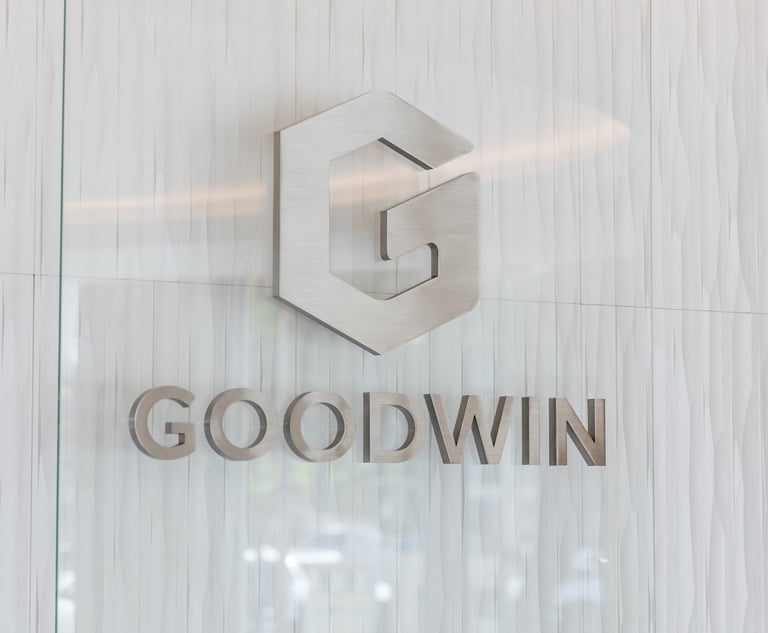Ninth Circuit Internet Contributory Copyright Infringement Liability Standards: A Road to Confusion
Inconsistent 'Cloudflare' rulings can be explained, at least in part, by the fact that the Ninth Circuit has provided an inconsistent framework involving multiple "tests" without guidance as to when such tests are to be applied.
August 29, 2022 at 11:00 AM
15 minute read
 The pirating of copyrighted music, videos, images, and other works on the Internet frequently occurs in foreign venues outside the reach of U.S. law, and on a massive scale by numerous users, all of which makes it impractical, if not impossible, for copyright owners to identify and pursue all potential infringers. As a result, copyright owners often direct their infringement claims against companies that are not the direct infringer, but against those entities that provide "services or products that facilitate access to websites throughout the world [that] can significantly magnify the effects of otherwise immaterial infringing activities," Perfect 10 v. Amazon.com, 508 F.3d 1146, 1172 (9th Cir. 2007) (amending and superseding on rehearing, 487 F.3d 701 (2007)), i.e., those who assist direct infringers to infringe. These suits are generally brought on theories of contributory copyright infringement.
The pirating of copyrighted music, videos, images, and other works on the Internet frequently occurs in foreign venues outside the reach of U.S. law, and on a massive scale by numerous users, all of which makes it impractical, if not impossible, for copyright owners to identify and pursue all potential infringers. As a result, copyright owners often direct their infringement claims against companies that are not the direct infringer, but against those entities that provide "services or products that facilitate access to websites throughout the world [that] can significantly magnify the effects of otherwise immaterial infringing activities," Perfect 10 v. Amazon.com, 508 F.3d 1146, 1172 (9th Cir. 2007) (amending and superseding on rehearing, 487 F.3d 701 (2007)), i.e., those who assist direct infringers to infringe. These suits are generally brought on theories of contributory copyright infringement.
Many of the decisions arising from suits including theories of contributory copyright infringement have come out of the Ninth Circuit Court of Appeals, as that court has held that a party may be liable when it "(1) has knowledge of another's infringement and (2) either (a) materially contributes to or (b) induces that infringement." Erickson Prods. v. Kast, 921 F.3d 822, 831 (9th Cir. 2019) (citation omitted).
This article focuses on the Ninth Circuit's decisions pertaining to the "materially contributes" standard in the context of Internet-based infringement claims. These decisions have spawned a number of rules and tests resulting in some confusion as to the applicable legal standards. Indeed, in two Ninth Circuit district court cases (from different districts) involving contributory copyright infringement claims against Cloudflare, an Internet service provider, the court employed different standards, reaching inconsistent conclusions based on ostensibly similar conduct.
This content has been archived. It is available through our partners, LexisNexis® and Bloomberg Law.
To view this content, please continue to their sites.
Not a Lexis Subscriber?
Subscribe Now
Not a Bloomberg Law Subscriber?
Subscribe Now
NOT FOR REPRINT
© 2025 ALM Global, LLC, All Rights Reserved. Request academic re-use from www.copyright.com. All other uses, submit a request to [email protected]. For more information visit Asset & Logo Licensing.
You Might Like
View All
Testing The Limits of “I Agree”: Court of Appeals Examines Clickwrap Arbitration Agreements
13 minute read
Change on the Horizon?: 2025 Begins With Numerous Patent Bills Pending
8 minute read

IP at the Frontier of AI: Navigating the New Landscape
Law Firms Mentioned
Trending Stories
Who Got The Work
J. Brugh Lower of Gibbons has entered an appearance for industrial equipment supplier Devco Corporation in a pending trademark infringement lawsuit. The suit, accusing the defendant of selling knock-off Graco products, was filed Dec. 18 in New Jersey District Court by Rivkin Radler on behalf of Graco Inc. and Graco Minnesota. The case, assigned to U.S. District Judge Zahid N. Quraishi, is 3:24-cv-11294, Graco Inc. et al v. Devco Corporation.
Who Got The Work
Rebecca Maller-Stein and Kent A. Yalowitz of Arnold & Porter Kaye Scholer have entered their appearances for Hanaco Venture Capital and its executives, Lior Prosor and David Frankel, in a pending securities lawsuit. The action, filed on Dec. 24 in New York Southern District Court by Zell, Aron & Co. on behalf of Goldeneye Advisors, accuses the defendants of negligently and fraudulently managing the plaintiff's $1 million investment. The case, assigned to U.S. District Judge Vernon S. Broderick, is 1:24-cv-09918, Goldeneye Advisors, LLC v. Hanaco Venture Capital, Ltd. et al.
Who Got The Work
Attorneys from A&O Shearman has stepped in as defense counsel for Toronto-Dominion Bank and other defendants in a pending securities class action. The suit, filed Dec. 11 in New York Southern District Court by Bleichmar Fonti & Auld, accuses the defendants of concealing the bank's 'pervasive' deficiencies in regards to its compliance with the Bank Secrecy Act and the quality of its anti-money laundering controls. The case, assigned to U.S. District Judge Arun Subramanian, is 1:24-cv-09445, Gonzalez v. The Toronto-Dominion Bank et al.
Who Got The Work
Crown Castle International, a Pennsylvania company providing shared communications infrastructure, has turned to Luke D. Wolf of Gordon Rees Scully Mansukhani to fend off a pending breach-of-contract lawsuit. The court action, filed Nov. 25 in Michigan Eastern District Court by Hooper Hathaway PC on behalf of The Town Residences LLC, accuses Crown Castle of failing to transfer approximately $30,000 in utility payments from T-Mobile in breach of a roof-top lease and assignment agreement. The case, assigned to U.S. District Judge Susan K. Declercq, is 2:24-cv-13131, The Town Residences LLC v. T-Mobile US, Inc. et al.
Who Got The Work
Wilfred P. Coronato and Daniel M. Schwartz of McCarter & English have stepped in as defense counsel to Electrolux Home Products Inc. in a pending product liability lawsuit. The court action, filed Nov. 26 in New York Eastern District Court by Poulos Lopiccolo PC and Nagel Rice LLP on behalf of David Stern, alleges that the defendant's refrigerators’ drawers and shelving repeatedly break and fall apart within months after purchase. The case, assigned to U.S. District Judge Joan M. Azrack, is 2:24-cv-08204, Stern v. Electrolux Home Products, Inc.
Featured Firms
Law Offices of Gary Martin Hays & Associates, P.C.
(470) 294-1674
Law Offices of Mark E. Salomone
(857) 444-6468
Smith & Hassler
(713) 739-1250






